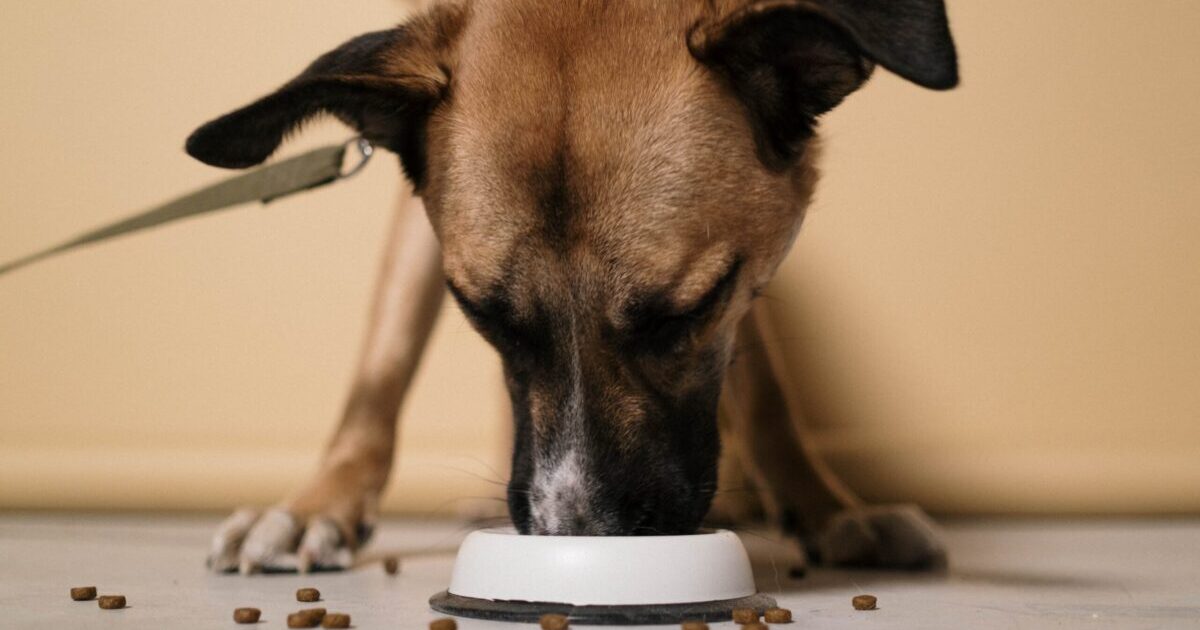
With countless dog food brands and recipes out there, it can be hard to know what you should be feeding your pup. First and foremost, you should always work with your veterinarian when it comes to making any dietary changes. For dogs with allergies or particular nutritional or weight loss needs, grain-free dog food may be recommended.
If you’re considering switching your dog’s food to grain-free, there are many factors to consider. Here’s everything you need to know about this particular kind of pet food.
All your questions answered:
- What is grain-free dog food?
- Pros and cons of grain-free dog food
- Are grains bad or unnecessary for dogs?
- Are carbohydrates bad for dogs?
- Are there dangers associated with grains?
- Should I switch my dog’s food?
- What are the best grain-free dog foods?
- About the FDA’s investigation into DCM (Dilated Cardiomyopathy) in dogs: myths and facts
- What is Taurine?
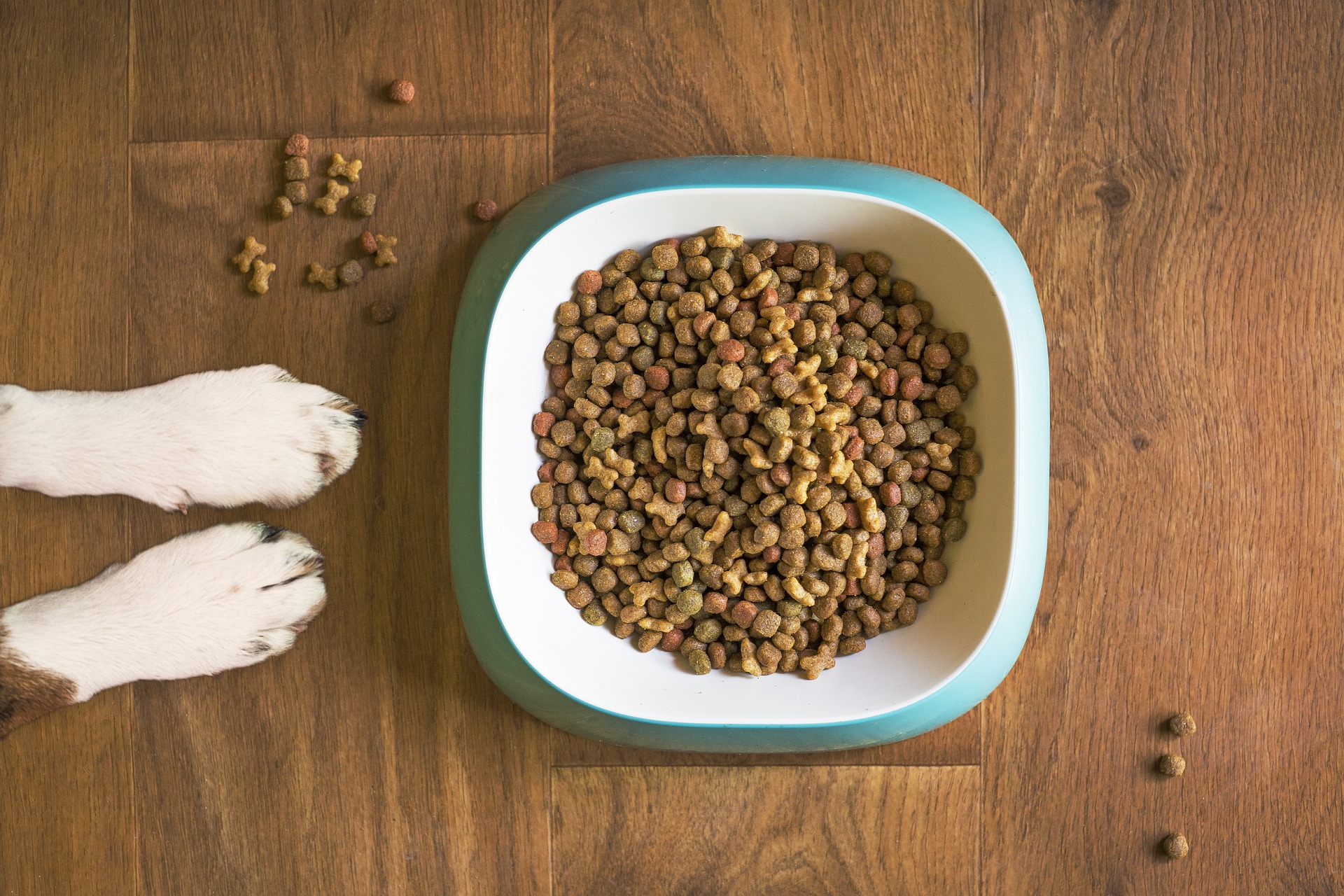
What Is Grain-Free Dog Food?
The label “grain-free” can be applied to any dog food made without wheat, corn, rice or other grains. The most common types of grains in dog foods are:
- Barley
- Corn
- Oats
- Rye
- Rice
- Wheat
- Sorghum
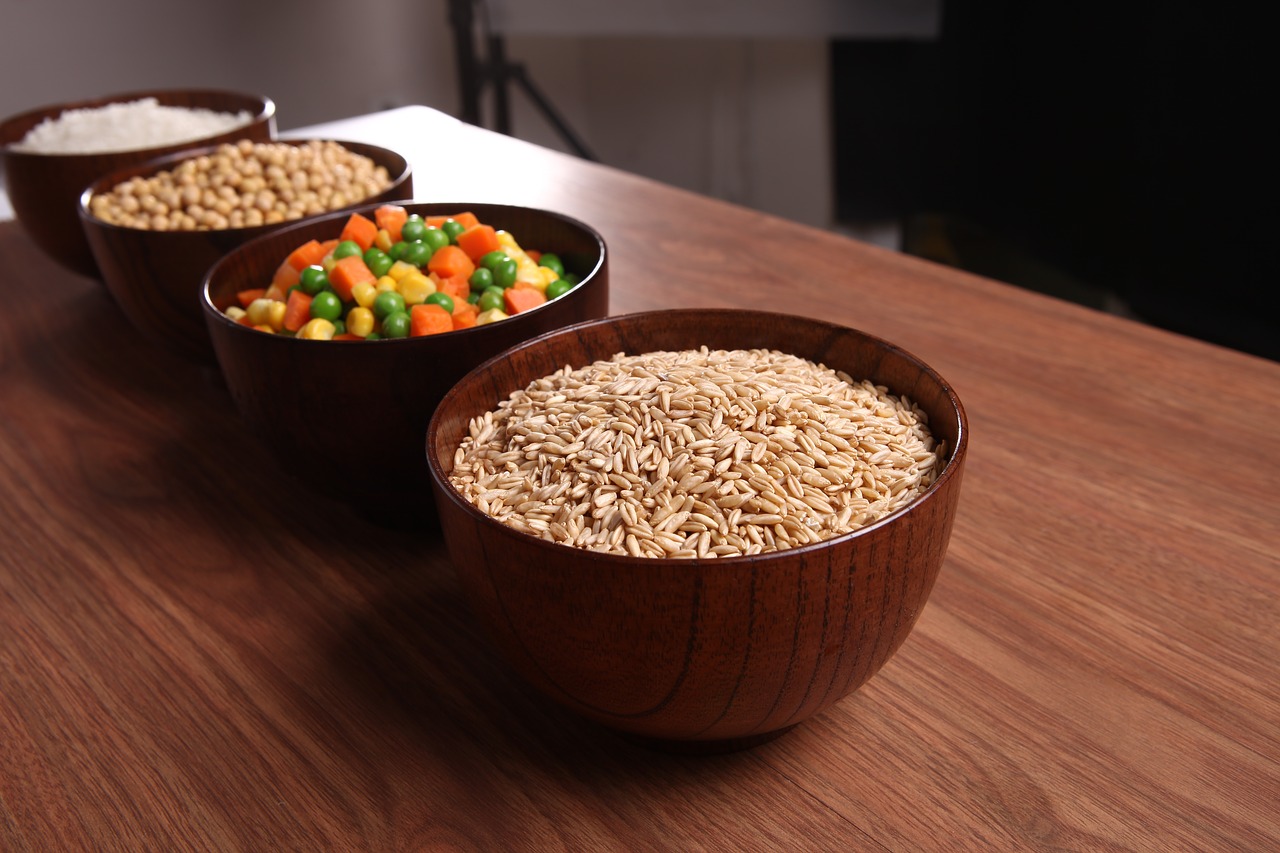
Since carbohydrates can provide energy, many grain-free dog foods use alternative carb sources like potatoes, legumes, and vegetable flour. That’s why grain-free is not the same as “low carb.” Dogs technically don’t have a dietary requirement for carbohydrates, but they do have a metabolic requirement for glucose, which carbs can provide. Similarly, “gluten-free” food may exclude wheat or barley, but it could include grains like corn or rice. Always check the label!
Pros And Cons Of Grain-Free Dog Food
There are many myths abound about what grain-free dog food really is and whether it is good or bad for your dog. The issue is a lot more complex than a simple “it’s good” or “it’s bad.” Here are some important things to know about this type of diet:
- Many grain-free dog foods contain a higher proportion of meat, but not all. To make up for a lack of grains, many of these foods have more meat in them. However, sometimes manufacturers will substitute some of those grains with other carbohydrates. A grain-free food isn’t necessarily all or even mostly meat.
- A grain-free diet may help identify food allergies. Your veterinarian may recommend this diet on a trial basis to see if symptoms improve. However, it’s worth noting that the majority of food allergies dogs have are to protein sources, not to grains.
- Grain-free is not synonymous with “healthier.” It’s a human tendency to feed our dogs according to our own personal preferences and biases. Many who seek to exclude more grains from their own diet might be tempted to do the same for their dog. Grains on their own are not inherently “unhealthy” for dogs.
- Grain-free dog foods tend to be more expensive. This could be due to the higher proportions of meat (which cost more) or simply a product of the diet-craze economy. For similar reasons, kibbles that contain more carbohydrates or inexpensive grains will cost less. In some cases, going for the cheaper food can have adverse effects on your dog’s overall health.
- Some grain-free foods can help with weight control. Its effectiveness depends on what ingredients the grains are substituted for.
- Less Gas! Yep, corn and wheat can cause gas in dogs. Switching to a grain-free diet is one way to reduce flatulence.
Are Grains Bad Or Unnecessary For Dogs?
We all know our little pups descended from the mighty wolf. It’s natural to assume they’re pure carnivores. However, they’re technically “indifferent omnivores.” Dogs evolved with us, and they also have been eating our table scraps for generations. Evolution has allowed them to digest certain starches and fats, like the grains their prey eats.
Dr. Donna Solomon, veterinarian and owner of Animal Medical Center of Chicago, wrote in Huffington Post:
“The dog is a subspecies of the grey wolf as Canis lupus familiaris, and classified in the order as Carnivora. Despite public belief, the dog is in fact not a true carnivore; the dog is an indifferent omnivore…This means that dogs have carnivorous traits with sharp teeth and meat drive, but also have the omnivore digestive traits with an ability to break down carbohydrate feeds.”
In other words, dogs can consume grains safely. Grain-free diets are not a product of pure nutritional necessity, though they can benefit many dogs.
Are Carbohydrates Bad For Dogs?
Many of us are trained to wince at the word “carbs.” However, there are actually good carbohydrates and “bad” carbohydrates. Complex carbohydrates, found in whole grains, legumes, and starchy vegetables, take longer for the body to break down. As a result, you end up with a more consistent amount of energy than with the simple carbohydrates found in fruit or syrup.
As I previously explained, dogs technically don’t have a nutritional requirement for carbs. They do have a minimum glucose requirement though, and carbohydrates can provide that energy when the body breaks them down. According to Dr. Susan G. Wynn, DVM, CVA, CVCH, AHG, carbohydrates can benefit dogs in several ways:
“While dogs do not require the carbohydrates found in grains or potatoes or any other food, there are some instances where a dog still might derive benefit from them being there. For instance, grains contain certain fibers that are beneficial for the growth of probiotic bacteria in the gut, and they also contain various required vitamins and minerals.”
Sometimes, low-carbohydrate diets may be recommended for dogs with diabetes or cancer. Otherwise, there’s no need to keep your dog on a low-carb diet unless advised by your vet.
Are There Dangers Associated With Grains?
![]()
Many of the real dangers associated with grains are the extras that can tag along with them. For example, “mycotoxins” are deadly molds that grow on grains while they’re being stored. Consumption of mycotoxins can lead to chronic diseases such as those of the liver and kidney.
To be extra cautious, Pet food safety advocate Susan Thixton recommends avoiding pet foods and treats containing grains most common to mycotoxin contamination: corn and wheat and to a lesser extent barley and oats.
Ultimately though, the problem here is with the manufacturing and distribution process, not so much the ingredients themselves. Thixton wrote:
“Because [pet owners] don’t know the testing methods each pet food manufacturer follows on mycotoxin testing or what allowable levels they accept in ingredients (or the long term effect of day to day minute mycotoxin consumption), avoiding these ingredients seems to be our only recourse.”
Other “tag-along” dangers associated with grains are insects, like beetles, and grain mites.
Should I Switch My Dog’s Food?
Dietary changes can have many effects. You should always consult with your veterinarian before making decisions about switching foods. Research is helpful and important, but your vet can confirm any concerns or questions you may have.
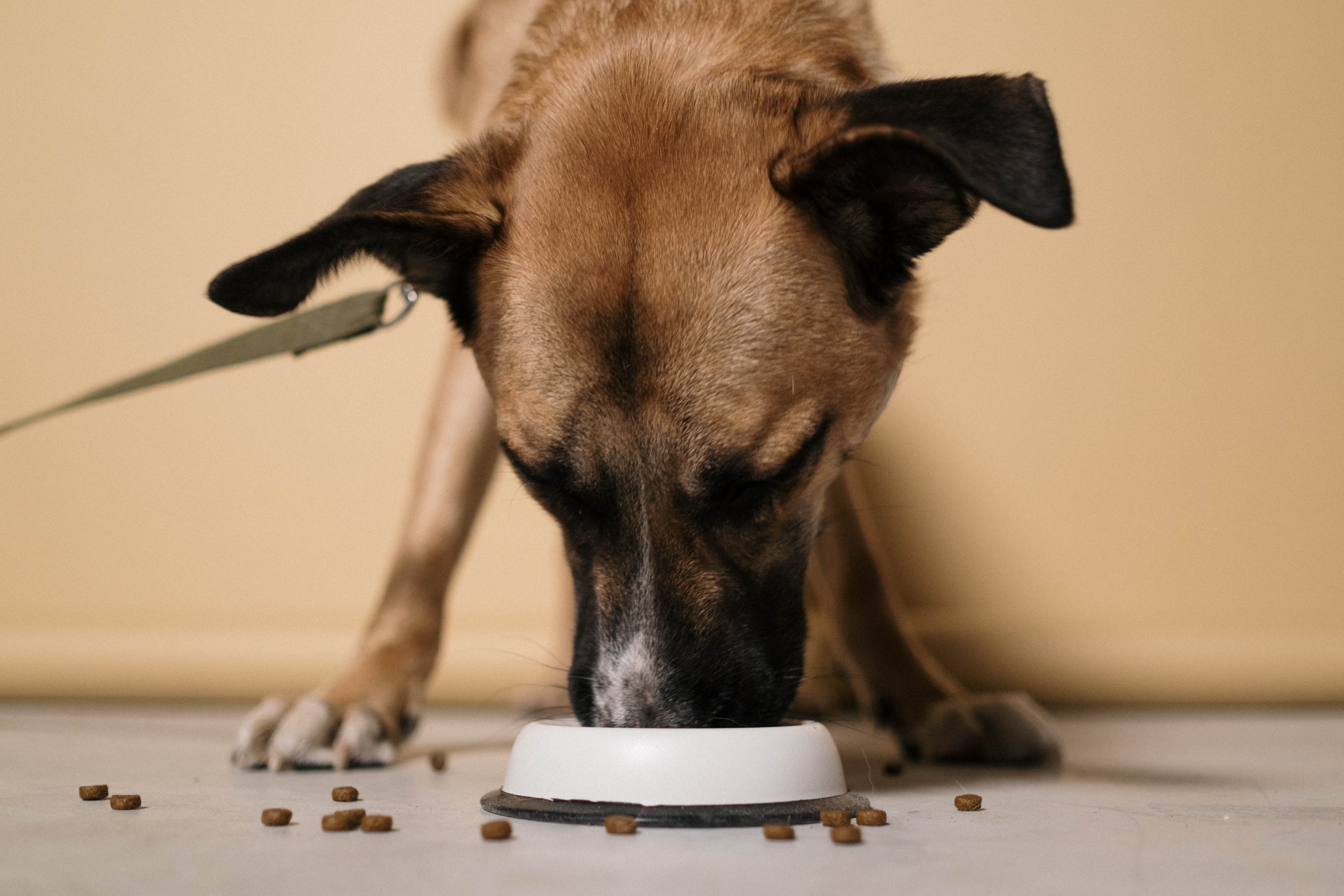
Diagnosing allergies can be a tricky process. Often, veterinarians will recommend switching your dog’s diet to identify possible allergens. This doesn’t really have to do with the presence of grains in food. The vast majority of food allergies in dogs are to the protein source (aka the meats.)
In general, it’s good to change up your dog’s food every once in a while. The most important thing to consider is whether your dog is eating a balanced, complete diet. Eating the same thing over and over again may lead to certain deficiencies.
So, the short answer is: it totally depends! A dog’s diet should be balanced, and what they eat might change depending on their age, size, or medical condition. Always consult your vet about your dog’s dietary needs.
Transitioning Your Dog To Grain-Free Food
If you decide to switch your dog from grain-based dog food to grain-free, start slowly. Mix in a little bit of the new food at a time, gradually increasing amounts over the course of a few weeks. This will allow your dog’s digestive system to adjust to the changes.
While you’re transitioning your dog’s food, keep an eye on their stool to make sure they’re not constipated or having diarrhea. You should also note if your dog refuses the food or their water. There could be health-related reasons for your dog refusing his food, but it could also be that he simply doesn’t like what’s being offered to him. Some pups are picky, but we love them anyway!
Picky eaters might love these nutritional food toppers.
The Best Grain-Free Dog Foods

If you have concerns about which foods are safe, make sure to look into the manufacturer. Companies with long-standing histories of safe, reputable practices are preferable. Here’s a veterinarian-supplied list of questions you should be asking about your dog food manufacturer.
The CVCA recommends making sure your pet’s food has gone through AAFCO (Association of American Feed Control Officials) testing and is found to be complete. You should also see if the food meets the World Small Animal Veterinary Association nutrition guidelines.
According to Dog Food Advisor, these brands top the list when it comes to nutritious grain-free pet food:
- Wellness Simple Limited Ingredient Diet Turkey and Potato
- Canidae Grain-Free Pure Real Salmon and Sweet Potato
- Taste Of The Wild Prey Angus Beef
- Purina Pro Plan Veterinary Diets HA Chicken Flavor
- Earthborn Venture Smoked Turkey and Butternut Squash
- Brothers Complete Lamb Meal and Egg
- Zignature Turkey Formula Limited Ingredient Dog Food
- Orijen Fit And Trim
- Merrick Grain-Free Healthy Weight
If you’re looking to make something grain-free and dog safe at home, check out some of our DIY recipes. If you do plan to make food or treats for your dog at home, make sure you’re aware of which ingredients dogs can’t have.
The FDA’s Investigation Into DCM (Dilated Cardiomyopathy) In Dogs: Myths And Facts
If you scrolled down here first, I’m not surprised. The FDA’s study of grain-free pet food as it relates to DCM in dogs has been a hot topic for the last several years. First: don’t panic. Here’s everything you need to know about their research and findings.
What is DCM?
Dilated cardiomyopathy is an abnormal heart muscle disease. When the heart’s left ventricle dilates, it can’t pump blood as well. The development of DCM can contribute to blood clots, irregular heartbeats, and even sudden death.
Part of the danger with DCM is that it’s hard to diagnose until it gets really bad. Symptoms of DCM include:
- Rapid breathing when resting
- Coughing or gagging
- Weakness
- Restless sleeping
- Distended belly
- Collapsing or fainting
If caught early, your dog’s heart function may improve in some cases with appropriate veterinary treatment and dietary modification.
Why Did The FDA Investigate Grain-Free Dog Foods?
Between January 1, 2014 and April 30, 2019, the FDA received 524 reports of DCM in dogs and cats. In many breeds, including the Doberman Pinscher, the Great Dane, the Boxer, and the Cocker Spaniel, this condition is a genetic inheritance. However, atypical information from the FDA’s reports led them to investigate the link between a grain-free diet and DCM in dogs.
Some evidence suggested that the link between grain-free diets and DCM may have something to do with the ingredients substituted, not the lack of grains. According to the FDA report, over 90% of foods reported in DCM cases were grain-free, and 93% of reported foods contained peas and/or lentils while 42% contained potatoes/sweet potatoes. No one animal protein source was predominant.
For more context, Dr. Jerry Klein, the Chief Veterinary Officer of the AKC, explained:
“The FDA is investigating a potential dietary link between canine dilated cardiomyopathy (DCM) and dogs eating certain grain-free dog foods. The foods of concern are those containing legumes such as peas or lentils, other legume seeds, or potatoes listed as primary ingredients. The FDA began investigating this matter after it received reports of DCM in dogs that had been eating these diets for a period of months to years. DCM itself is not considered rare in dogs, but these reports are unusual because the disease occurred in breeds of dogs not typically prone to the disease.”
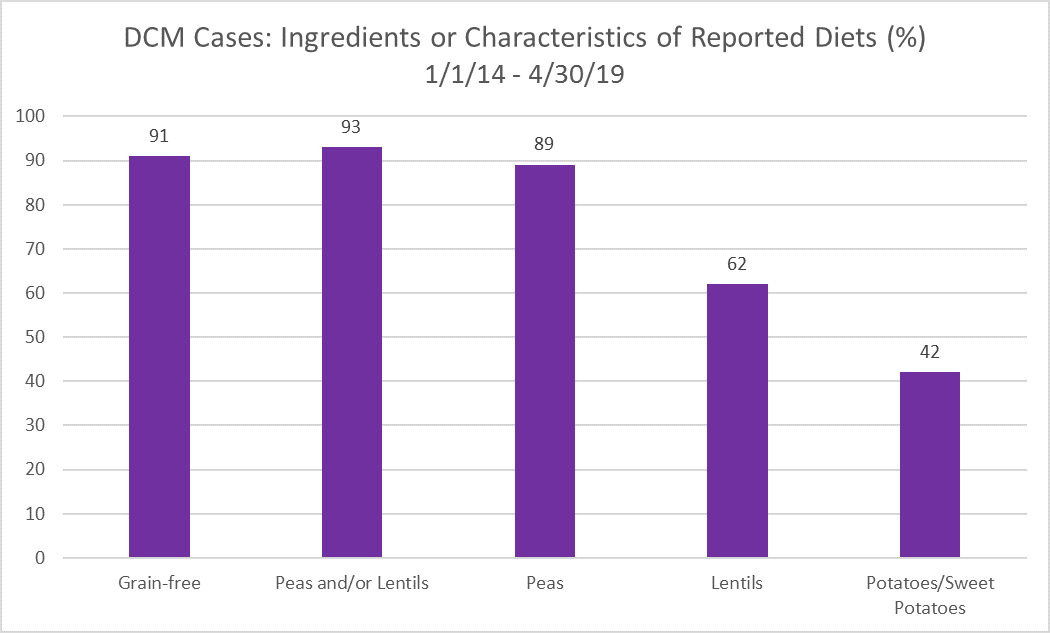
Many veterinarians and nutritionists have pointed out that dogs don’t really need a grain-free diet, so it might not be worth the risk or stress. Lisa Lippman, lead New York veterinarian for the in-home veterinary service Fuzzy Pet Health, told The Atlantic:
“Even though I think it’s uncommon and unlikely to happen to your dog, it’s so unnecessary to be feeding grain-free. DCM is just not a disease you want to mess with, and as a pet parent, to think that you could have caused it, even inadvertently, is really devastating.”
You can learn more about the investigation and specific report numbers here. The FDA also published a list of specific dog food brands that showed up in their reports of DCM. Most reports were for dry food, but there were some for wet or semi-moist foods. Some of the brands noted in the report include:
- Acana (67 reports)
- Zignature (64 reports)
- Taste of the Wild (53 reports)
- 4Health (32 reports)
- Earthborn Holistic (32 reports)
- Blue Buffalo (31 reports)
- Nature’s Domain (29 reports)
- Fromm (24 reports)
- Merrick (16 reports)
- California Natural (15 reports)
- Natural Balance (15 reports)
- Orijen (12 reports)
- Nature’s Variety (10 reports)
- Nutrisource (10 reports)
- Nutro (10 reports)
- Rachael Ray Nutrish (10 reports)
Still, the FDA stopped short of advising against purchasing these brands. Their research left too much unanswered.
Why We Can’t Conclude Grain-Free Foods Cause DCM
Ultimately, the FDA determined that there isn’t sufficient evidence to suggest these ingredients cause DCM in dogs. They are still investigating the issue and seeking to better understand the causes. According to Dr. Klein:
“At this time, there is no proof that these ingredients are the cause of DCM in a broader range of dogs, but dog owners should be aware of this alert from the FDA. The FDA continues to work with veterinary cardiologists and veterinary nutritionists to better understand the effect, if any, of grain-free diets on dogs.”
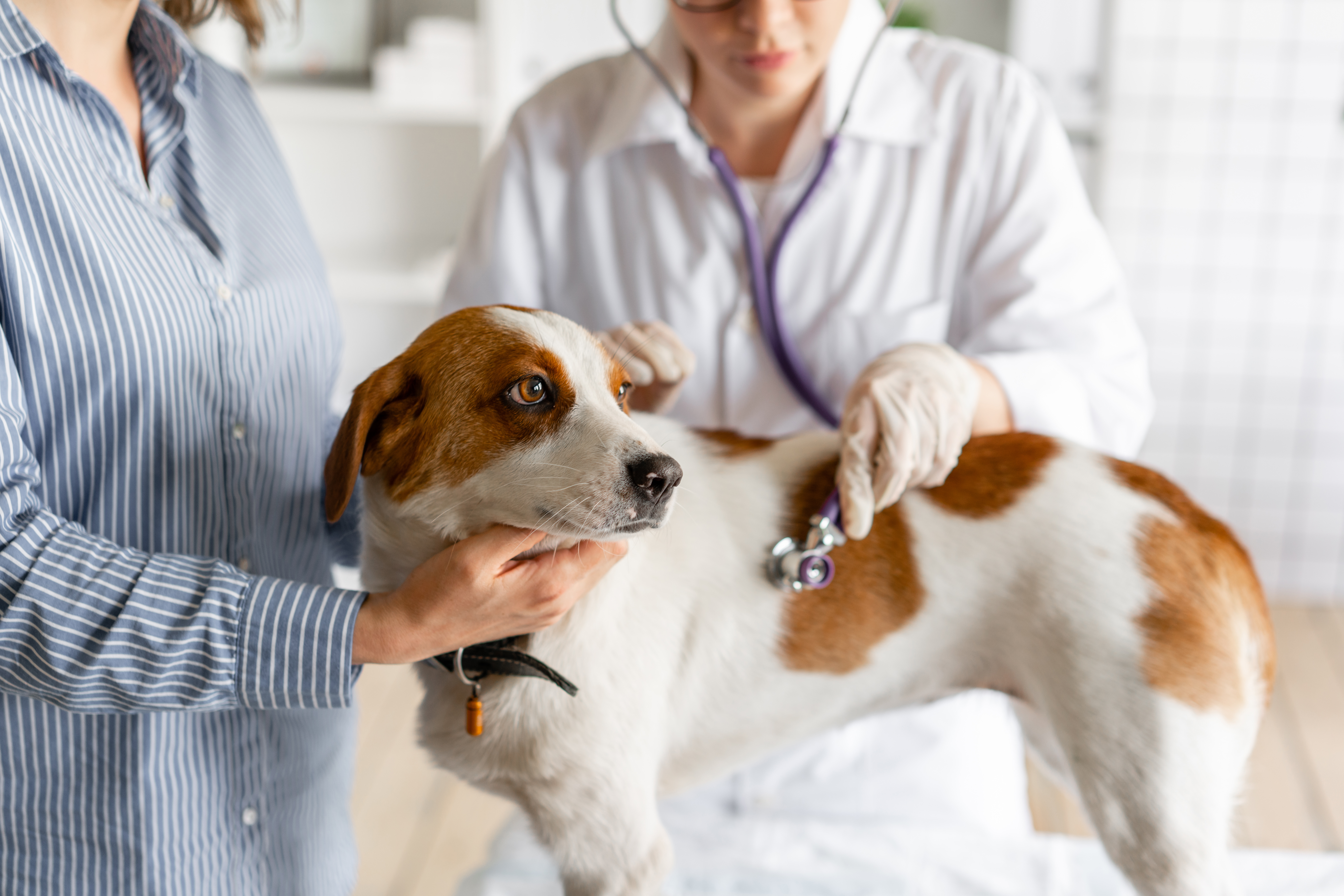
Since the majority of DCM reports were submitted after the FDA’s first public alert in July of 2018, there may have been a reporting bias against grain-free foods involved. Something else of note is that the recent spike in DCM cases happened just in the last few years. The FDA has continued to work with the pet food industry to better understand whether changes in ingredients, ingredient sourcing, processing, or formulation may be disease contributing factors.
Dr. Steven Solomon, Director of the Center for Veterinary Medicine (CVM) for the FDA, emphasized that many factors beyond just diet can cause DCM in dogs:
“I believe that our approach to date speaks to the fact that, based off the adverse event reports we have received, we have observed an association between certain diets and DCM. However, it has been nothing that would trigger a recall or market withdrawal, because the DCM issue seems to involve more factors than the food itself.”
For parents of affected dogs who changed their dog’s diet from grain-free, the FDA noted those changes were not necessarily responsible for partial or full recovery from DCM. Nearly all the affected dogs were also treated with supplemental taurine, pharmaceutical drugs, and additional supplements.
What Is Taurine?
So what exactly is taurine and how does it relate to DCM and the grain-free food discussion? Taurine is an essential nutrient obtained directly or indirectly from a dog’s diet. Most dog foods don’t add it because dogs can make taurine from meat protein and methionine and cysteine amino acids. So, if your dog’s food lacks these essential building blocks and their diet isn’t supplemented with taurine, a deficiency may occur.
Taurine is especially concentrated in the heart muscle and contributes to its proper functioning. Hence: a taurine deficiency causes heart problems.
The FDA’s research and additional studies indicate that legume proteins are low in the amino acids that make taurine. So don’t blame it on the grains or lack thereof! Changes in your dog’s diet, including potentially adding supplements, can help. You can have your dog’s blood tested to determine their taurine levels. Your vet will be able to tell you whether there’s any reason for concern.
Ultimately, the major takeaways of this guide are: trust your vet and always read the label.
Please direct any questions about your dog’s particular health and nutrition needs to your veterinarian. This article is intended to inform, not to serve as official medical or nutrition advice.
The post Grain-Free Dog Food: Everything You Need To Know And More! appeared first on iHeartDogs.com.
via Whisker Therapy